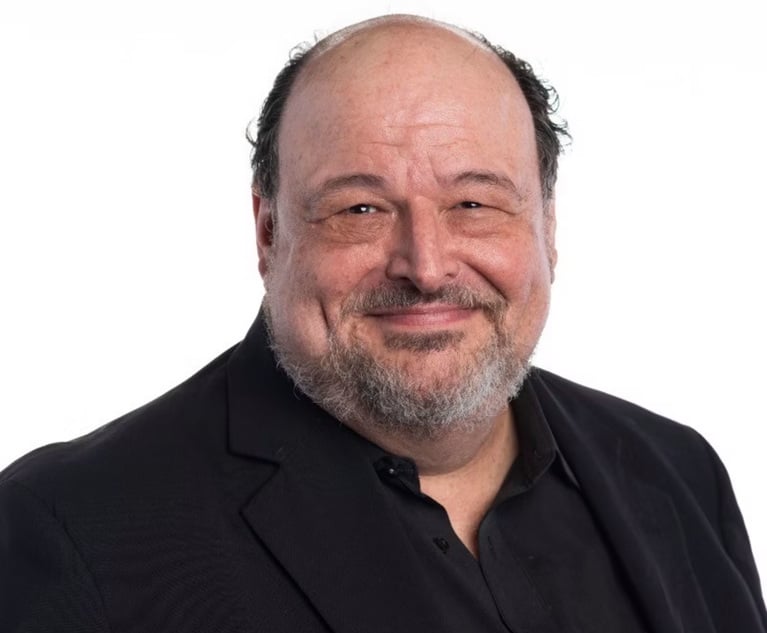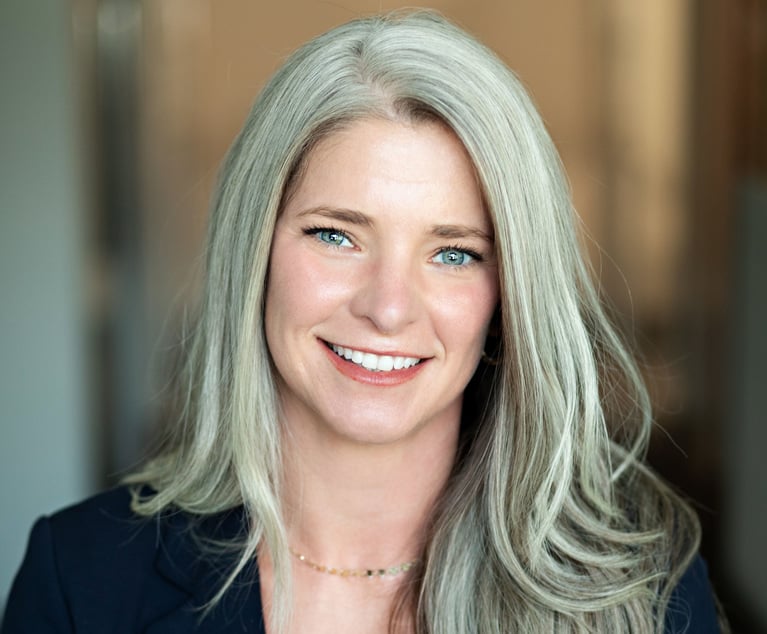DOJ cracks down on offshore banking
Swiss bankers indicted for helping U.S. clients hide billions from the IRS.
October 03, 2011 at 08:00 PM
14 minute read
A concerted three-year push to curtail offshore banking practices that allow wealthy Americans to avoid taxes continued in July when the Justice Department (DOJ) announced the indictment of three Swiss bankers and an executive on conspiracy charges. The ongoing enforcement effort has leveraged thousands of individual tax evaders against the banks and bankers that have eagerly assisted them for decades.
The heat has been on the secretive Swiss since at least 2008, when a Senate panel accused Swiss banks of helping clients evade taxes by stashing billions of dollars in hidden accounts. UBS, Switzerland's largest bank, took the brunt of the early scrutiny. The bank was criminally charged in February 2009. It quickly agreed to a deferred prosecution agreement (DPA) and paid $780 million in fines and disgorgement.
Now Credit Suisse, the second-largest Swiss bank, has taken center stage. The July indictment (see “The Accused”) included Credit Suisse's former head of North America Offshore Banking, and the company itself is the target of an ongoing investigation. It is widely assumed that Credit Suisse will also agree to a DPA, and may ultimately pay more than $1 billion in penalties.
The offshore banking crackdown has inverted standard tax-evasion prosecutions and has sent waves of fear through the Swiss banking industry.
“Every time I go to Switzerland, I'm asked by Swiss bankers if it's safe to go on vacation in the United States,” says Martin R. Press, a shareholder at Gunster. “I tell them: If you've not been involved in any financial crimes, it's a wonderful country to visit.”
Opportunity Meets Need
Traditionally, tax evasion charges focus on the taxpayer, but in recent years the Internal Revenue Service (IRS) and DOJ have turned their focus on the industry that facilitates the crime. That's a significant transition, and it reflects a recognition that large-scale tax evasion can't occur without significant assistance from banks and bankers.
“Fraud occurs when opportunity meets need—if you hand the keys to the car over to someone, you probably shouldn't be too shocked if they steal it,” says Neal H. Levin, who leads the White Collar Fraud and International Asset Recovery Practice at Freeborn & Peters. “Like just about any other major fraud event—Madoff, Sanford, Petters—in banking fraud it's all about controls: What controls were or were not in place to allow something like this to occur?”
That's a loaded question for bankers. A large part of the appeal of secret foreign accounts has always been tax evasion, with the banks at least tacit participants. Sometimes, however, bankers went much further than merely looking the other way. According to the July indictment, Credit Suisse's bankers and managers engaged in services explicitly designed to help U.S. customers avoid taxes.
Prosecutors allege the defendants solicited U.S. clients to open secret accounts expressly because Swiss bank secrecy would help them hide money from the IRS. The indictment also alleges they provided unlicensed and unregistered banking services in the U.S. If convicted, the defendants face up to five years in prison and $250,000 in fines.
“Cases like this send an interesting message,” Levin says. “Obviously the Swiss banks made a lot of money over the years helping to shelter money. People paid big fees to have their money parked there, and they parked a lot of money. There's an accountability issue here.”
Voluntary Disclosure
In large part, prosecutors have built the cases against Swiss banks using information provided by their customers. In 2008, the IRS announced a voluntary disclosure program for U.S. taxpayers who had money in secret foreign accounts.
“People came into the program, confessed, paid a 20 percent fine, and off they went,” says Press. “Basically, you pay 20 percent of the highest value [in the secret accounts] over the previous six years, pay a little income tax penalty and you're free.”
Customers had several motivations to come clean. Some had inherited their secret accounts; some believed they could earn a better return if they had unfettered access to their money, even after paying fines; still others simply jumped at the chance to tie off liability and gain peace of mind.
According to Forbes, the IRS expected 1,000 taxpayers to come forward before the disclosure program ended in September 2009. In reality, more than 15,000 did, spurred in no small part by the high-profile investigationof UBS. The high volume created a backlog that lasted into 2010.
The voluntary disclosure process revealed much about the opaque world of Swiss banking, some of it incriminating. According to the indictment, traveling bankers illegally trolled the U.S. for customers, helped them break the law and then destroyed evidence of their activities.
“Individual taxpayers told the criminal investigation division in the IRS about many of the incidents in dealing with foreign bankers,” Press says. “Certain patterns of bankers coming into the U.S. hit a raw nerve with the Department of Justice. You can't just come into the United States, use our banking system, take money, make deposits or open up accounts when you're not licensed.”
The program was so successful it was repeated this year. The deadline to self-disclose was Sept. 9.
No End in Sight
The cases are a clear signal that just as in other corporate criminal areas, individual bankers are in the prosecutorial crosshairs.
“If the Justice Department is looking into alleged wrongful activities on the part of a financial institution, they will look at the individuals that are involved at the institutions as well for potential criminal prosecution,” says Larry Hill, chair of the Tax Controversy and Litigation Practice Group at Dewey & LeBoeuf. “It's a relatively new phenomenon that they're going after the officers or employees of these banks, but this is a relatively new phenomenon in general.”
Success breeds success for prosecutors, so experts see no slowdown in the crackdown on offshore banking.
“There's certainly a trend on the part of the Internal Revenue Service to pursue offshore activities—to look at activities of U.S. taxpayers abroad, as well as domestically,” Hill says. “They set up the large business and international section of the IRS to deal with that.”
There are sure to be more plum targets out there for the feds. Although the July indictment included many splashy allegations—thousands of secret accounts, a multigenerational conspiracy dating back to the 1950s and $3 billion in hidden assets—it's just a small fraction of the assets U.S. taxpayers have hidden abroad.
“In the end that's really not a lot of money, relatively speaking,” Levin says. “But this is happening a lot more than what we're reading about here. This is just the tip of the iceberg. Based on what I see relative to the targets that I chase, it just simply isn't that difficult to get money offshore.”
Sidebar: The Accused
A superseding indictment announced July 21 charged four individuals with conspiracy to help clients avoid U.S. taxes via secret accounts:
• Markus Walder, former head of North America Offshore Banking at Credit Suisse
This content has been archived. It is available through our partners, LexisNexis® and Bloomberg Law.
To view this content, please continue to their sites.
Not a Lexis Subscriber?
Subscribe Now
Not a Bloomberg Law Subscriber?
Subscribe Now
NOT FOR REPRINT
© 2024 ALM Global, LLC, All Rights Reserved. Request academic re-use from www.copyright.com. All other uses, submit a request to [email protected]. For more information visit Asset & Logo Licensing.
You Might Like
View All
'The Show Must Go On': Solo-GC-of-Year Kevin Colby Pulls Off Perpetual Juggling Act

Contract Software Unicorn Ironclad Hires Former Pinterest Lawyer as GC
2 minute read
How Amy Harris Leverages Diversity to Give UMB Financial a Competitive Edge
5 minute read
Auditor Finds 'Significant Deficiency' in FTC Accounting to Tune of $7M
4 minute readTrending Stories
Who Got The Work
Michael G. Bongiorno, Andrew Scott Dulberg and Elizabeth E. Driscoll from Wilmer Cutler Pickering Hale and Dorr have stepped in to represent Symbotic Inc., an A.I.-enabled technology platform that focuses on increasing supply chain efficiency, and other defendants in a pending shareholder derivative lawsuit. The case, filed Oct. 2 in Massachusetts District Court by the Brown Law Firm on behalf of Stephen Austen, accuses certain officers and directors of misleading investors in regard to Symbotic's potential for margin growth by failing to disclose that the company was not equipped to timely deploy its systems or manage expenses through project delays. The case, assigned to U.S. District Judge Nathaniel M. Gorton, is 1:24-cv-12522, Austen v. Cohen et al.
Who Got The Work
Edmund Polubinski and Marie Killmond of Davis Polk & Wardwell have entered appearances for data platform software development company MongoDB and other defendants in a pending shareholder derivative lawsuit. The action, filed Oct. 7 in New York Southern District Court by the Brown Law Firm, accuses the company's directors and/or officers of falsely expressing confidence in the company’s restructuring of its sales incentive plan and downplaying the severity of decreases in its upfront commitments. The case is 1:24-cv-07594, Roy v. Ittycheria et al.
Who Got The Work
Amy O. Bruchs and Kurt F. Ellison of Michael Best & Friedrich have entered appearances for Epic Systems Corp. in a pending employment discrimination lawsuit. The suit was filed Sept. 7 in Wisconsin Western District Court by Levine Eisberner LLC and Siri & Glimstad on behalf of a project manager who claims that he was wrongfully terminated after applying for a religious exemption to the defendant's COVID-19 vaccine mandate. The case, assigned to U.S. Magistrate Judge Anita Marie Boor, is 3:24-cv-00630, Secker, Nathan v. Epic Systems Corporation.
Who Got The Work
David X. Sullivan, Thomas J. Finn and Gregory A. Hall from McCarter & English have entered appearances for Sunrun Installation Services in a pending civil rights lawsuit. The complaint was filed Sept. 4 in Connecticut District Court by attorney Robert M. Berke on behalf of former employee George Edward Steins, who was arrested and charged with employing an unregistered home improvement salesperson. The complaint alleges that had Sunrun informed the Connecticut Department of Consumer Protection that the plaintiff's employment had ended in 2017 and that he no longer held Sunrun's home improvement contractor license, he would not have been hit with charges, which were dismissed in May 2024. The case, assigned to U.S. District Judge Jeffrey A. Meyer, is 3:24-cv-01423, Steins v. Sunrun, Inc. et al.
Who Got The Work
Greenberg Traurig shareholder Joshua L. Raskin has entered an appearance for boohoo.com UK Ltd. in a pending patent infringement lawsuit. The suit, filed Sept. 3 in Texas Eastern District Court by Rozier Hardt McDonough on behalf of Alto Dynamics, asserts five patents related to an online shopping platform. The case, assigned to U.S. District Judge Rodney Gilstrap, is 2:24-cv-00719, Alto Dynamics, LLC v. boohoo.com UK Limited.
Featured Firms
Law Offices of Gary Martin Hays & Associates, P.C.
(470) 294-1674
Law Offices of Mark E. Salomone
(857) 444-6468
Smith & Hassler
(713) 739-1250






